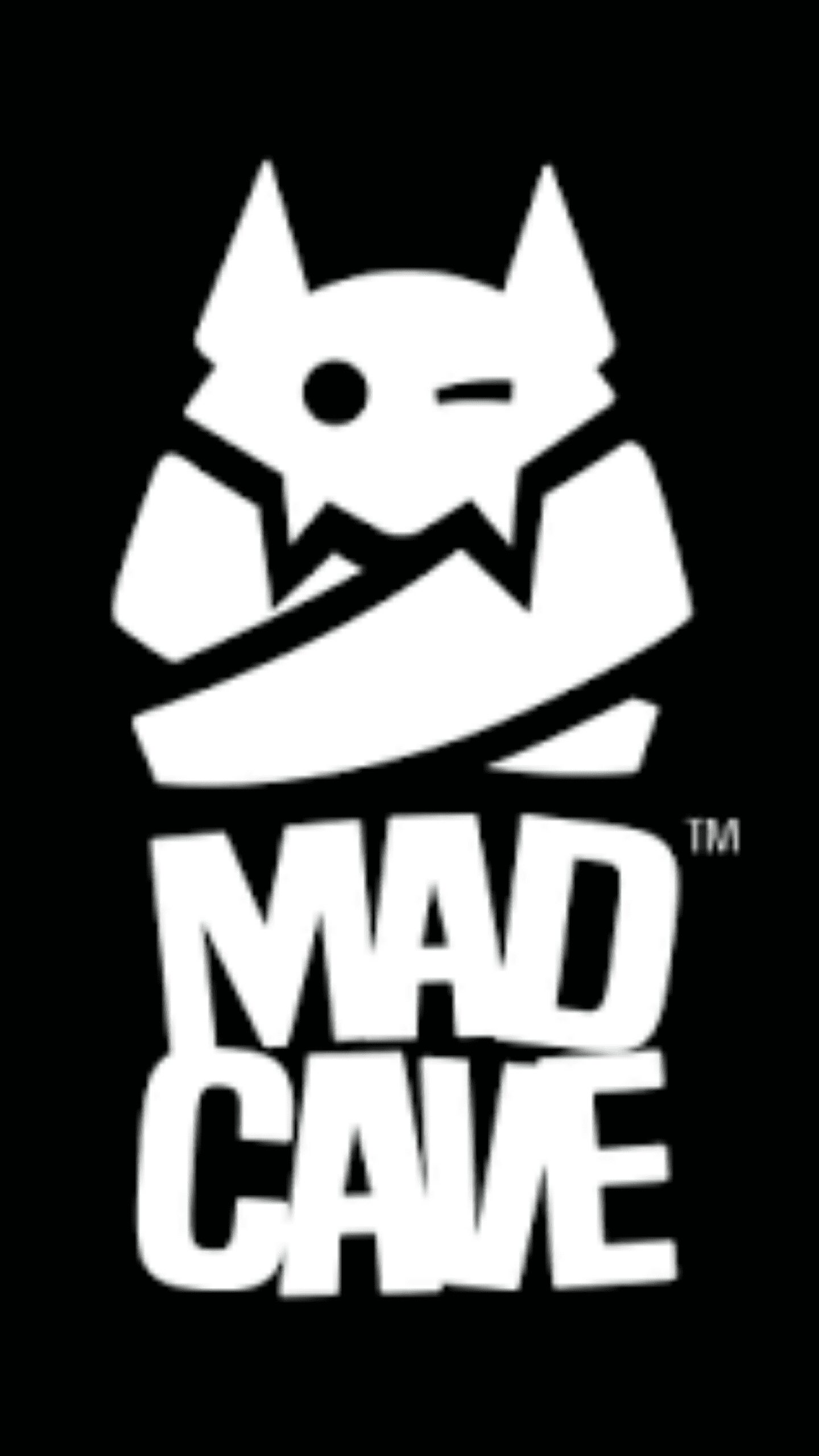Scott Snyder is one of the most popular and prolific comic book writers in the world. He has received critical acclaim and commercial success for his work on his creator-owned series American Vampire as well as his run on Batman with artist Greg Capullo. I got to have a conversation with him about his writing influences and his work on his original series A.D. After Death for Image Comics and DC Comics All-Star Batman. We also spent a good amount of time discussing the writing class that he teaches. A subject with which he is very passionate.
Deron (GWW): What stories inspired you to start writing. What did you read that made you say “Hey, you know what, I want to start doing this myself”?
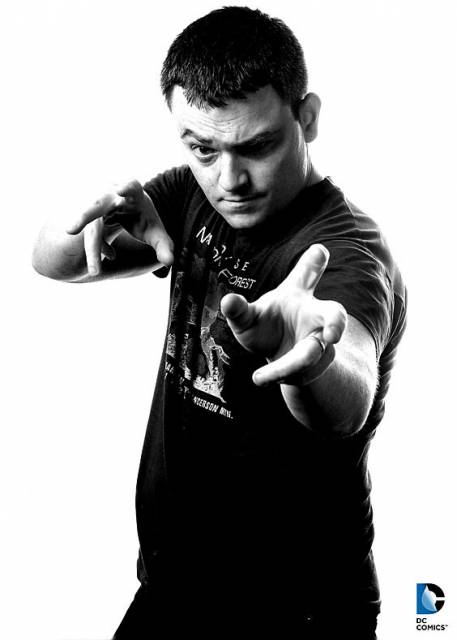
Scott Snyder: That’s a great question. For me, I mean, it’s hard to pinpoint it. I grew up on comics. My dad would take me to the Forbidden Planet up by us in New York. I grew up on 23rd street and it was on 10th street and we would go and there was this warehouse one where they had an upstairs and a downstairs and we’d go every Wednesday and he was great about bringing me after school. When I went away over the summer, he’d send me my pull list. I always wanted to be a comic book artist as a kid, all the way through high school. It was when I got to college that I realized I might not be good enough. I didn’t know how to pursue that because I had gone to school in Providence so I’d be able to take classes at RISD, the Rhode Island School of Design. The schedule was not the same program as Brown, where it was sort of a trimester versus a quarterly schedule. There was no way to really get those classes onto the roster without making all these kind of strange contortions so in the end, there were writing classes at my school and so I started taking those much more seriously and really fell in love with the craft. The stories that I remember loving the most as a kid were from comics.
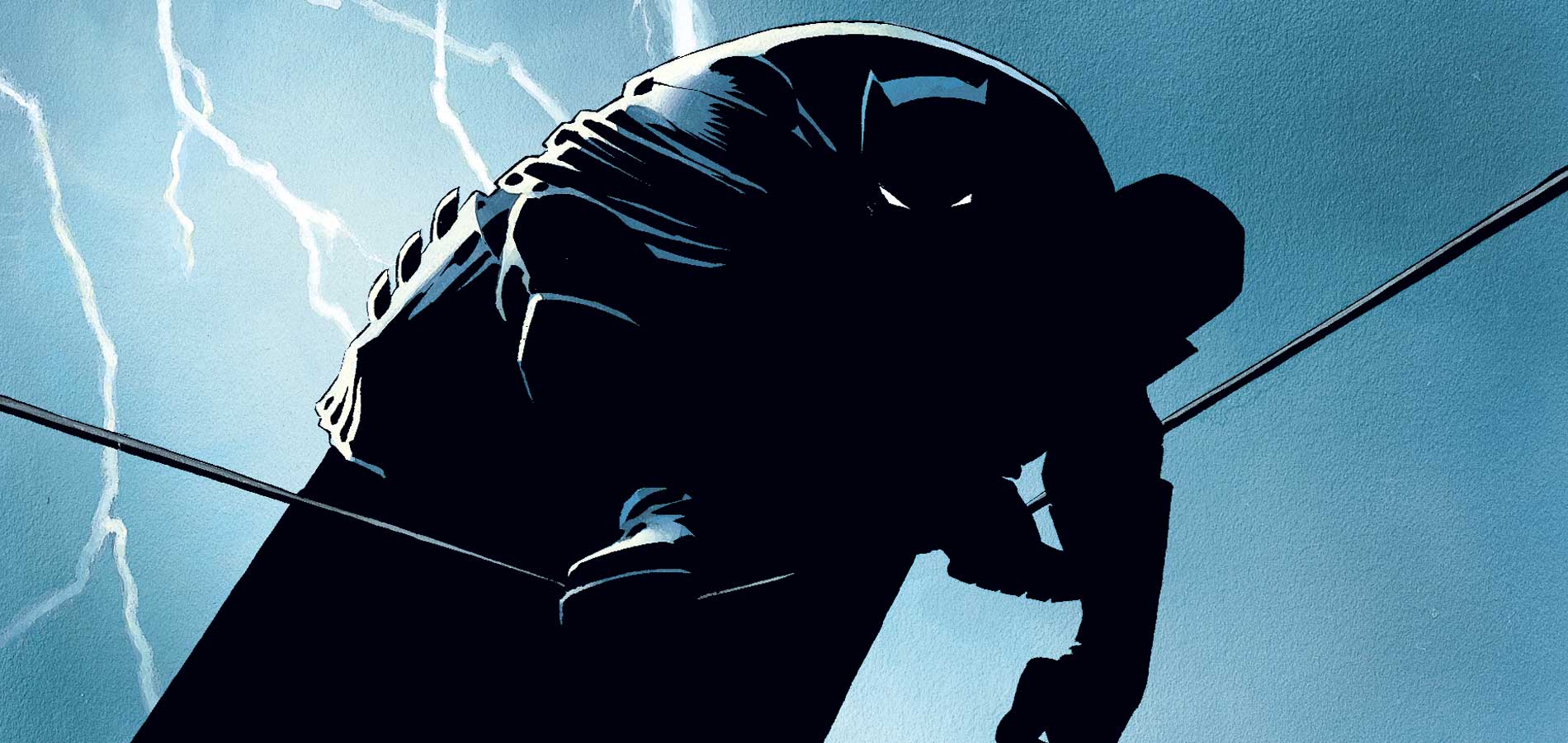
The Dark Knight Returns was a huge touchstone for me as was (Batman) Year One. Those two were kind of the twin pillars of what made me want to write and draw as a kid just because growing up in New York City, it kind of showed me two ways that you can really write stories that are relevant, immediate and urgent in completely different modes. One mode was to do it in the most gritty and realistic and transparent way like in Year One and the other way was to write with sort of an equal sense of passion about things that were in the zeitgeist and as easily recognizable but translated into kind of zany comic book language. Crime was a problem at that time in the 80’s in the city, but we didn’t have people who looked like the mutants. Translating it into the zany kind of mutant design made it understandable both as something that was real and relevant but also fun and crazy and so that was Dark Knight.
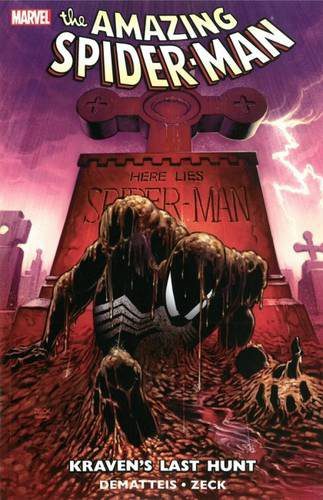
The fear of nuclear annihilation, the Reagan-era stuff, the over-the-top sort of crazy post-modern feel of that book taught me how to do things like (Batman) Zero Year or taught me how to do things in fiction, the sort of the best Stephen King stories do or Neil Gaiman does. To me they penetrate your deep, very real and immediate anxieties about things; whether they are personal demons or they are fears about the world itself at that moment. (They) do it in a way that speaks through genre or speaks through crazy sort of cartoonish extensions of life and yet they do it in a really piercing way. Those two books meant a lot of me. Other stories I can remember, in comics looming large were Kraven’s Last Hunt. That was a huge one for me. (Batman) The Cult was way too scary for me when I first read it. it was always stories that I think pushed the characters into more mature territory than I wasn’t quite ready for. I loved kind of being talked up to in that regard and so those stories really loom large, you know, the Claremont X-Men was a big one too. Book-wise, Stephen King was probably like the most totemic figure for me. The earliest I remember really, sorry, this is like the longest answer to your question ever.
Deron (GWW): Not at all. This is great.
Scott Snyder: The earliest that I remember really falling in love with a novel was I went away to this sports camp when I was like nine. I was a Dungeons and Dragons geek so sports camp was not the best choice. I just remember hiding in arts and crafts a lot and ultimately, at night, we had a counselor who decided he was going to read us The Eyes of the Dragon. He started on the first night and finished on the last.
Deron (GWW): Wow. That is relatively intense for a nine year old.
Scott Snyder: It was a 9-week camp and I remember it being the best part of my day. So I have a vivid, vivid memory of kind of lying there waiting and getting excited to hear another chapter about Roland and Flagg and all that stuff. So, yeah, Stephen King with Pet Semetary, The Shining, Night Shift, Skeleton Crew and Needful Things. I was a pretty avid King fan. I still am.
Deron (GWW): Same here. Every summer there are two books I have to read start to finish and they are The Stand and It. That’s always part of my summer reading list.
Scott Snyder: That’s awesome.
Deron (GWW): I read that you teach a DC Writers Development Class.
Scott Snyder: I do.
Deron (GWW): What things do you stress to your students regarding how they should approach a story?
Scott Snyder: That’s another good question. I mean for me I think my job as a teacher isn’t to completely try and get them to write in a certain mold, the DC mold, it’s almost the opposite of that. It’s sort of an inverted mission from that and (Greg) Capullo is funny because he’s like, “What are you doing this class for? You’re training your replacement.” My feeling is that if I do my job well I actually am not doing that at all. What I’m trying to do is show the people in the class that the most important thing that you can do when you get into superhero comics, in my opinion, is to tell stories that matter to you. (Stories) that speak to the same interests and the passions that you have in your independent work or in your writing, whether that medium you’re writing in takes place in or outside of comics. It’s not about conforming to a DC mold, it’s the opposite. It’s about taking the sort of things that matter to you and finding the right character that makes you brave in life and, as the writer, be able to express those things and find ways of telling a story in your voice.
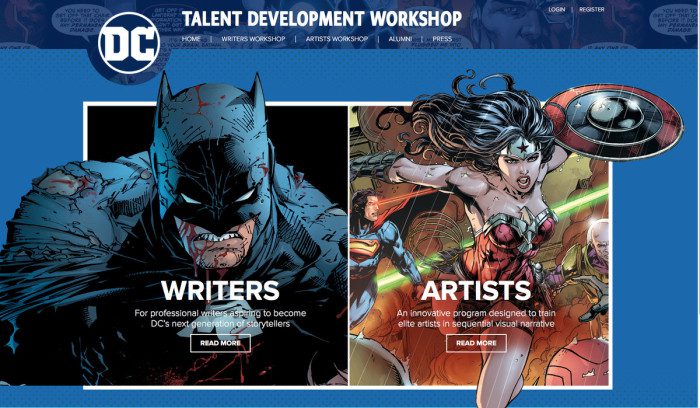
If I do my job right I’m helping along, at least in some capacity, really singular kind of individuated writing styles, passionate writing styles and writer’s voices, so, I really love it. I mean it’s easily one of the highlights of the week for me and part of it is about bringing in new voices. So we try and cast a pretty wide net in terms of the people we select from the application process. Everybody has to have some experience and be published because it is superhero comics. They’re pretty rigorous and it’s a lot pressure but they’re people from all walks of life, all countries, all over the place. We had students this past semester from Australia and Puerto Rico and all over, one out of Nevada, another in London, so I really enjoy it quite a bit. It’s something I’m definitely very dedicated to and the best advice I can give them, I think, is just to write. It’s the advice given to me in fourth grade by a writing teacher I had. It was essentially you have to write the story today that you would like to pick up and read the most. It doesn’t have to be the smartest or the best, it just has to be the one that you would most like to find on the shelf today and I kind of try and start every class, every semester with that, that north star in some way or another.

Deron (GWW): That’s actually a great approach that I appreciate as a fledgling writer myself. My hard cover dog-eared version of (Stephen King’s) On Writing –
Scott Snyder: Oh my God, I love that book.
Deron (GWW): – says the same thing.
Scott Snyder: You know it’s funny because I’ve been lucky enough to get to work with Stephen King over the years now and then to get to meet him a few times and hang out with him and he’s hilarious. My wife and I were driving to Florida a few years ago and he invited us to come down. He’ll like take you out on the pier behind the house with his lantern, you know, because he knows you’re thinking to yourself like I’m on a creaky pier with Stephen King and I could fall to my death and he’s like “oh, this sure is a wobbly pier isn’t it”? He’s really, really funny.
Deron (GWW): That’s awesome.
Scott Snyder: I love him and there’s nobody more encouraging to young writers.
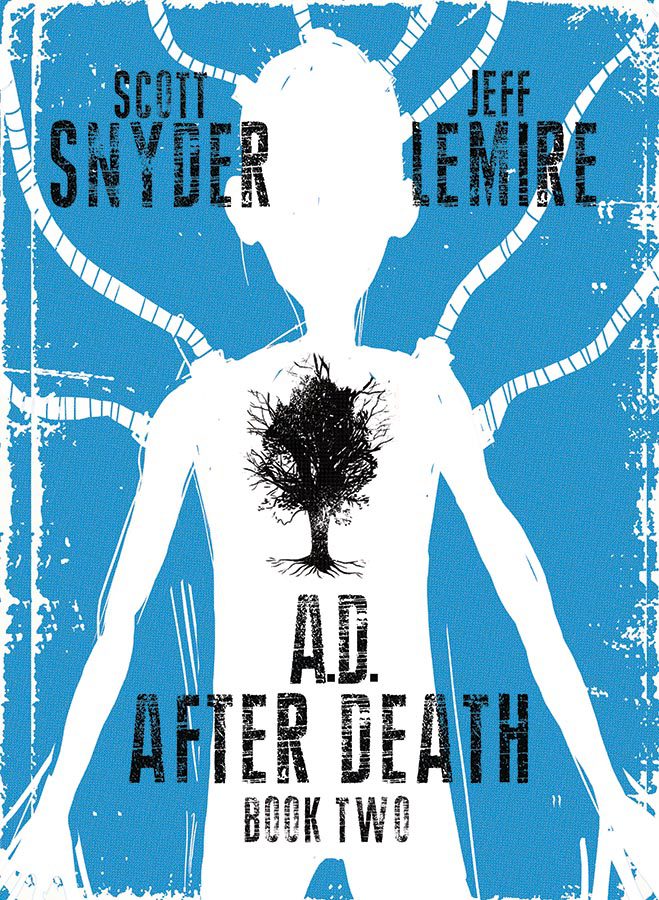
Deron (GWW): My next question is about A.D. After Death. I read the first two chapters. I really like it. I love the style especially the art in the text. It’s like I’m reading someone’s log or a chronicle of someone’s existence. Was that style deliberate or was it something that evolved?
Scott Snyder: It really did evolve. I mean it was initially just going to be a novella. It was going to be about maybe half the length or a third of the length that it wound up being and it was just going to be comics. Then Jeff (Lemire) and I were talking about the story and he has been one of my best friends for seven years now, almost eight. He knows that it was a really personal story and he started encouraging me to incorporate more and more prose where he said “Why don’t you write these journal entries for the main character?”, for Jonah, because part of the book is about the act of writing and recording your life so that you know who you are. It’s sort of a big element of the narrative and so I started and then he encouraged me to do more and more and it wound up getting bigger and bigger and eventually we realized that the best format for it would be this kind of blend. and we both really fell in love with it and experimented with it.
Steve Wands, the letterer on the book, is just incredible and he actually letters All Star (Batman) with me too. He’s lettered American Vampire so we’re all really good friends and he was up for trying it and so it became something that was really a big collaboration between us. I’m just finishing the third one right now. I just finished it but I have to edit it with Jeff and wait till you see, this one like blends all of it, like prose on top of pictures with a journal and I’m really, really excited. The whole story has kind of a big (ending), it was built out of the ending. The ending was kind of where it started so I’m excited. It’s the part that I’ve been waiting to get to for a while so I hope you guys like it.
Deron (GWW): That was going to lead to my next question. You’ve set up some pretty intense character conflicts. Without spoiling it, is there anything that we should be expecting from the conclusion?
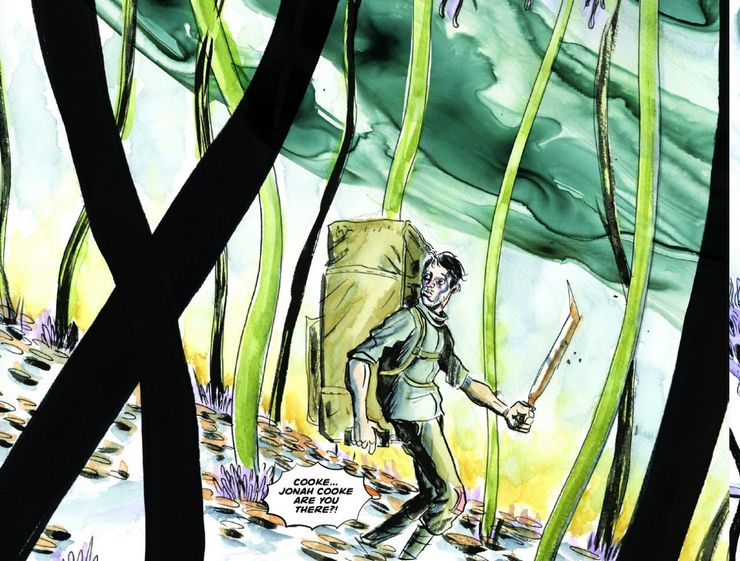
Scott Snyder: It definitely all comes to a head. I mean it’s a story about a guy who has been trying for hundreds of years to find the confidence to be able to say I’m going to accept who I am with all my shortcomings. I am a selfish, scared person but knowing that, knowing who I am, and moving forward from that is much better than this loop I’m caught in. He has some pretty ugly surprises waiting for him at the bottom of the mountain. There are all kinds of revelations coming with it, but at the end, it’s a pretty personal story. It’s very much about, to me at least, the kind of night terrors that I have about how fast everything goes and the fear that there’s nothing beyond life, that ultimately you never really find meaning in it or you don’t find purpose beyond the present. When I’m feeling well and happy, those things seem ridiculous but if I’m battling anxiety or depression, those things can get very aggressive with their claws and sometimes that really keeps me down. So, I’m very proud of the book in that way. For me, it’s sort of looking right into the face of the stuff that makes me, I think, really makes me struggle when I’m not feeling at my best.
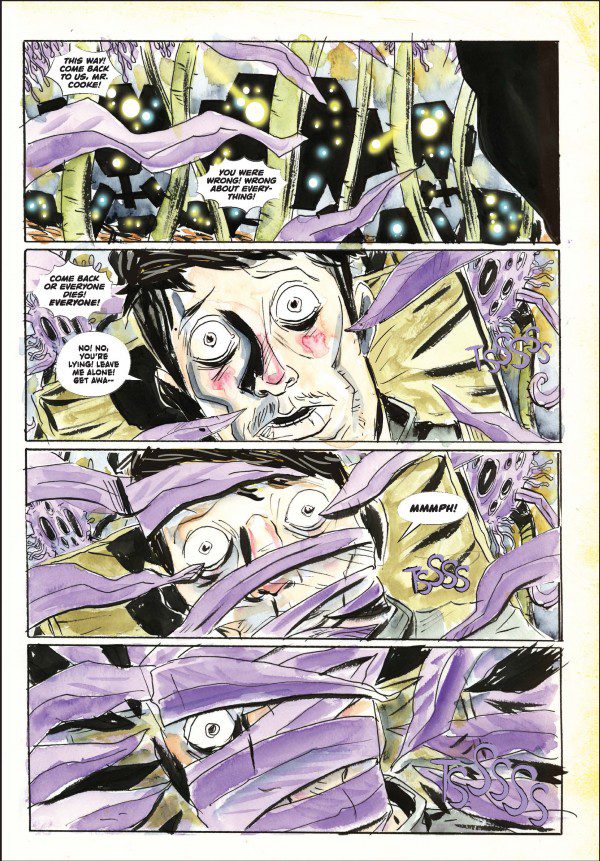
Deron (GWW): It definitely feels personal even in reading it. Now once the initial run of the series concludes, since you just finished and you’re going through the editing process, is this a world that you might revisit? I know you’re not that far removed from it yet, but do you feel that there are any characters you might want to flesh out into their own stories or any additional stories you might want to tell from this same world?
Scott Snyder: Yeah, you know, it’s really funny actually. When we sold it to Sony for film, before we did that we talked to a few other people that had offers on it. One of the offers was for television and one of the ways that they talked about it, as a property, was sort of exactly the way that we would approach it if we were continuing it or returned to it. Which is almost prismatic, basically like a story that had all these different points of entry. If (we) were going to do another sort of another book about it, it wouldn’t be a sequel or a prequel, it would be something to the side.
Deron (GWW): Like a parallel story to the main narrative.
Scott Snyder: Right. They cited things like the Black Mirror or Lost. They were talking about going to different characters and not just characters in the community at the retreat, but instead talking about characters that were involved in the making of the cure. Characters that stayed behind and experienced the dying. Characters that are living down there right now in the barbaric aftermath. Characters that are up in the retreat and telling their stories. It was this approach where (the series) would look at it from all angles and that’s kind of how I think we would do it if we come back to it. I would like to tell a story about one moment in time where the people that were left behind with this encroaching catastrophe that almost slaughtered (everyone) off but wound up surviving, but only children survived for a short while.

It’s almost a Lord of the Flies world for a couple hundred years before it falls apart and becomes something else. Because they’ve been up there for so long it’s longer than, you know, not just American history but 800 years have passed, so in that time civilizations can rise and fall. That’s how we would do it. It’s looking at it as a conversation with the idea of the struggle to overcome or deal with death in different moments in the trajectory of the story, from the moment that the cure is developed until the end of this story A.D. and everything in between. So it would be picking points along that trajectory and telling the stories from different angles if that makes sense.
Deron (GWW): It does. It is an interesting approach that can definitely fall into the genre of world-building series that seems to be going on in studios now. Building franchises seems to be the goal and nothing is just a one shot anymore.
Scott Snyder: Yeah, it’s immersive. That’s the way I think about it where it’s an exploratory way of approaching story.
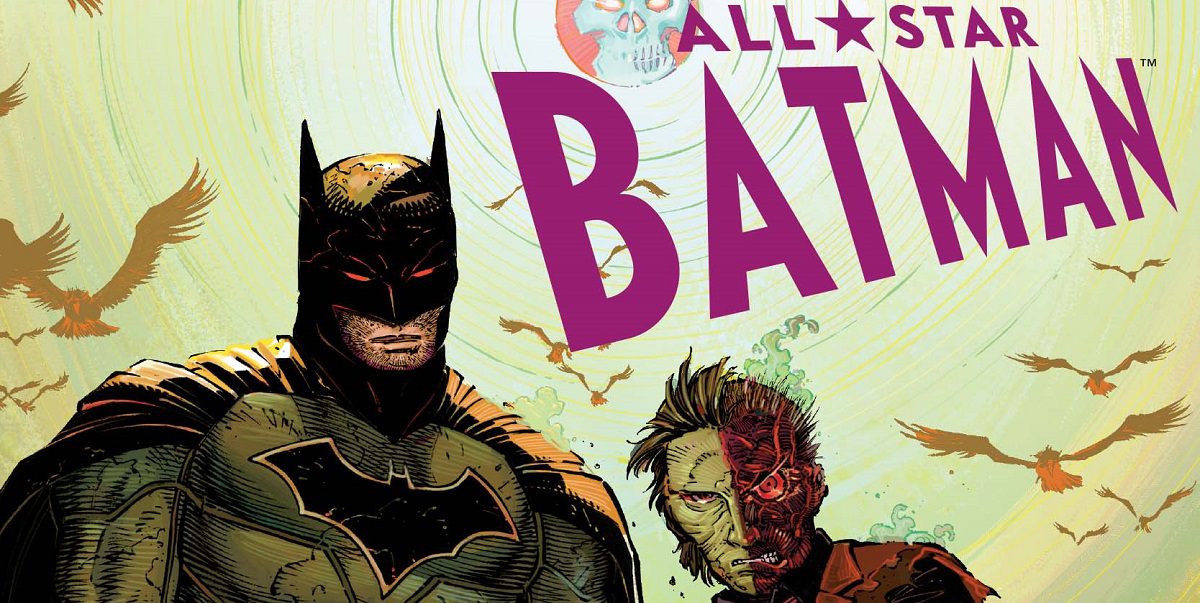
Deron (GWW): In All-Star Batman, you just finished an arc involving Batman and Two-Face outside of Gotham. What inspired you to write, in essence, a road picture with these two characters?
Scott Snyder: I think where it came from was first, I knew that I wanted to use Two-Face because the whole year on All-Star is sort of about reinventing or reimagining villains who personally scary me. What I think makes them scary to me, but also making them scary in ways that I think touch on anxieties that are in the air right now. Two-Face to me, the thing that makes him personally scary is that when I’m not feeling at my best I often feel like a collection of my own worst impulses. Or a failure in the way that I feel like I’m a fake at being a good dad or a good husband or a good writer, any of it. There’s that kind of ugly side that just wants to sort of rebel and be selfish and shirk responsibility and be a bad guy and Two-Face is the kind of character that says that’s what will happen eventually. You will always go that way at some point.
Deron (GWW): I can see that.
Scott Snyder: You might as well just sort of give in and secondarily, the thing that got me excited about him was I feel like a lot of people feel that way right now. Discourse has gotten so ugly and on top of that people feel these anxieties about the end of the world, the end of decency, the end of resources or climate. The more dire things feel or the more connected we all are. I think that more people also feel the desire to kind of act out and act on their darker impulses in private. Two-Face speaks to something in the zeitgeist right now too. He’s like, I see all your secrets. I see all the things you do that you don’t want anyone to see. I know who you are and I accept it.

So the way we came up with the road story was essentially I knew Tom (King) was going to be in charge of doing the Gotham stuff. James (Tynion IV) was doing the Bat family and I had All-Star. I was like well, I don’t want to just keep it where it is. What if I do a whole series where every single villain is out of Gotham? I started getting really excited thinking about, you know, Mr. Freeze in Alaska and Poison Ivy in Death Valley and Catwoman in Savannah, Mad Hatter in the Mississippi Delta, and why they would be there. Penguin in Miami, why they would be in these places and I started to be more and more interested not just for the zaniness of it although that’s fun, but because when you’re constricted by Gotham, it’s a great feeling except that you’re writing inside of a box where everything is urban and grounded. I grew up in that setting and you tell stories that are about his relationship to the people he protects (Batman).
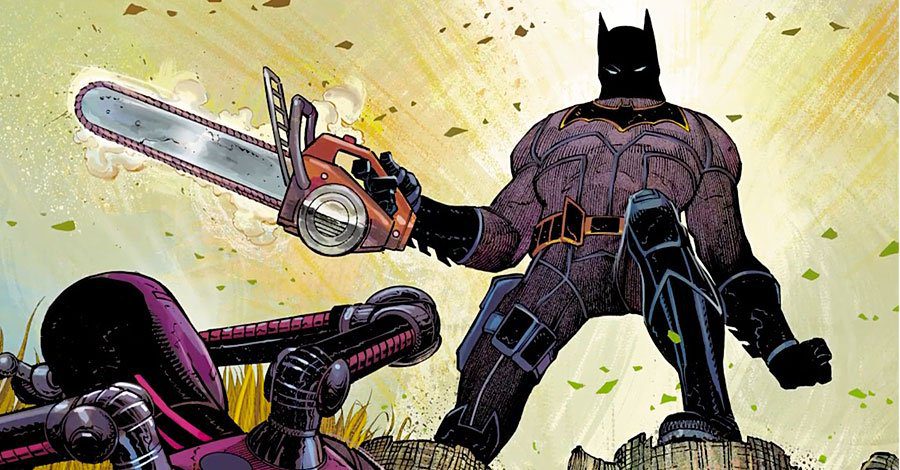
When he’s outside of Gotham you can tell stories about fears and demons and things that are almost bigger and crazier because you’re not just about saving the people of Gotham, you can have bigger conversations with him. That’s what I wanted to do and I realized the first story should be one that literally took him out of Gotham on a trip. Then I was like I know what to do and it all just came together really, really well and when I approached John (Romita Jr.) about it, he actually lives like throwing distance from my house, I didn’t realize until about two years ago. We just moved here. We live in a port town in Long Island and I run by his house when I go running. We went downtown and met at a bar, I told him and he’s like, “It’s like Midnight Run!” and I was like Midnight Run –
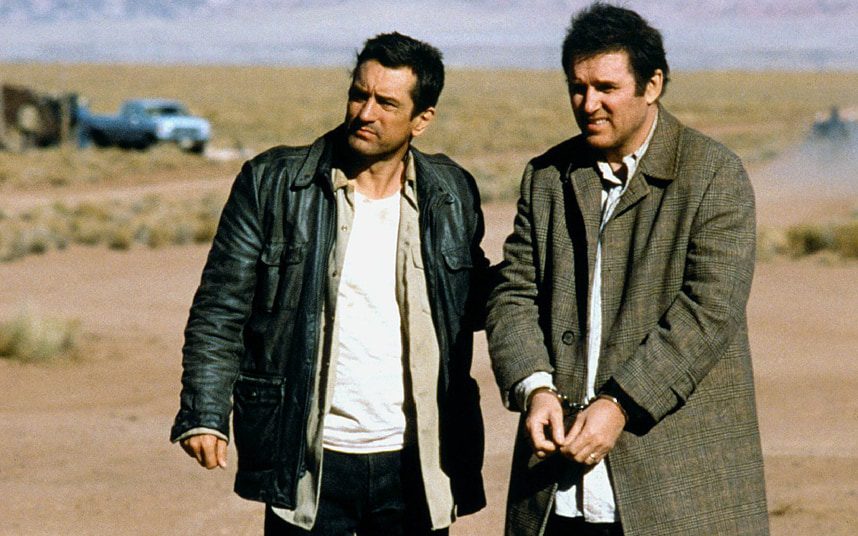
Deron (GWW): Okay, yeah, that’s what I was thinking when I was reading it.
Scott Snyder: I love that movie. I was like great. It was a real pleasure and that’s kind of how it came to be and then every story after it again takes place outside of Gotham in kind of an interesting remote location I think. So, I’m excited.
Deron (GWW): I just finished reading Issue No. 6 with Mr. Freeze and it was so haunting and surreal. I loved it because I’ve always loved Victor Frieze as a character. What made you decide to tell this Mr. Freeze story and what do you like or not like about the character?
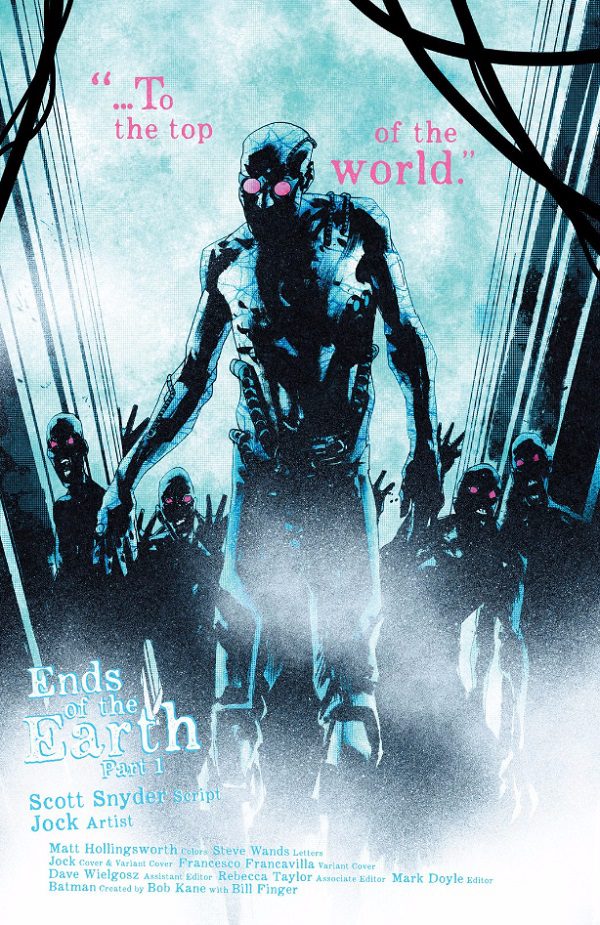
Scott Snyder: The way All Star works is that I try to approach each artist and say “Who would you like to draw?” I have ideas in a notebook for the villains that I find most exciting. I have ideas for Hatter and Ivy and Freeze and what I realized was most of these ones like Freeze, Hatter, Ivy, Raj (Al Gul) and others seem to be kind of doomsday stories about the end of the world. Where each of them is responsible in one way or another for end to the world stuff or at least acting in a way that speaks to possibilities for the end of the world. So it comes down to saying to the artist “Which one do you want to draw?” When they say, well, Ivy or Catwoman, I try to look at my notebook and say okay does this story fit with this or that and how do I position it. Can I tell one big story out of these? I tell them my ideas for the character and if they like it then we go from there and I’ll say “Do you want to draw Ivy in a lush environment like this or do you want to draw her in the desert because I’d like the desert?” Lisa (Tula Lotay) was like “I think Death Valley is great, let’s do it.” It becomes that.
There is a difference in working with Greg Capullo who’s easily one of my best friends and family at this point. Working with him is one of the joys. We knew each other so well that it was just the singular experience where we knew it was always us in conversation with the arc before it. It was this total straight line where it was this one builds on that one and this one speaks to the one two sparks ago with Joker. So it was always sort of different takes on the same sort of genealogy at least of story. Here this (All-Star Batman) is almost like every single one is a new challenge and experience and such a different kind of thrill. Whereas (Batman) was a huge thrill, the ride of my life and I couldn’t have loved it more; This is a different series, a kind of explosive fun, pleasure. It’s like Who would you like to draw? Okay, well, what do you feel comfortable doing? Do you want something quieter or louder? Do you like fight scenes? Okay, great, well, let me bend my style so that you can shine and that experiment is where I think it becomes so much fun.

Working with people like Jock and Francesco (Francavilla) in this issue was like Capullo and me. I know them so well that it allows me to experiment in different ways because I know the way it’s going to look. I know their style. I know what they like and that they know how I write and it gives me a foundation to be able to do an issue like this that’s more prose. Whereas when I work with Lisa (Tula), it’s more like we’re on our first date. We’re kind of figuring it out and that’s exciting too.
Deron (GWW): I love the collaborative aspect of it and the fact that everything has the same feel but a different look. That’s why I appreciate All Star because it really feels like you’re bringing in the best of the best. You’re essentially telling a single story arc but everyone has their own look and feel that you can find different things to appreciate.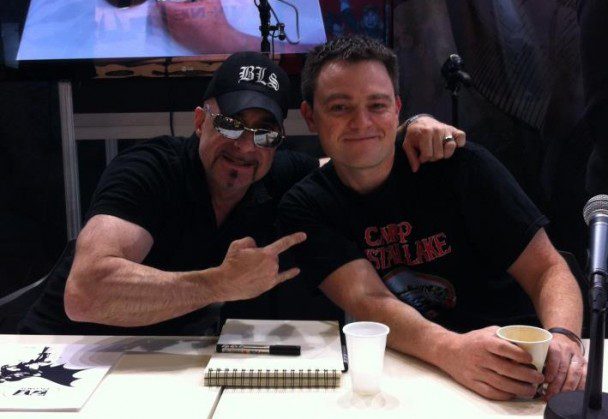
Scott Snyder: Thanks, man. I really appreciate you saying that.
Deron (GWW): Is there any exclusive news that you might want to break for Geeks Worldwide about any upcoming projects you’re working on?
Scott Snyder: I wish I had. I’m doing a big story with Greg Capullo but I can’t say anything about it yet. If it comes together the way I hope they’ll announce it pretty soon. It if doesn’t then I guess we’ll do another thing, but it seems to be on track and he and I love working together and we’ll work together forever back and forth, but everything is looking good. So my hope is that it will get announced pretty soon. We’re just sort of putting the finishing touches on the first chapters of it. My hope is that we’ll be able to talk to you guys about it.
Deron (GWW): If it comes together, I’m absolutely on board, whatever it is. I would love to pick up another collaboration with you two guys.
Scott Snyder: I appreciate you saying that.
Deron (GWW): Oh, no problem.
Scott Snyder: It’s definitely a fun one.
Deron (GWW): This has been a pleasure for me and I really appreciate your time.
Scott Snyder: No worries. Let’s make this the start of a lot of, why don’t we just make it happen that every time we have an issue of All Star or A.D. or anything, I’ll just hop on the phone with you and we’ll do this.
Deron (GWW): I would absolutely love it. This sounds great.
Scott Snyder: All right, let’s do it. We’ll just make it a thing. So I’ll send you the issues early and then we’ll just make it a habit.
Deron (GWW): Absolutely.

Stay Tuned to GWW for more from Deron and Scott Snyder…

